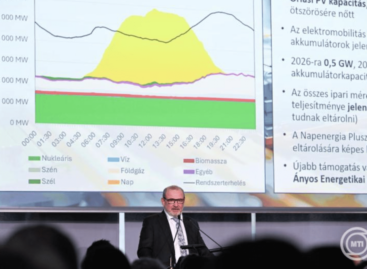EU compensation due to Ukrainian grain imports can be applied for in autumn
Taking targeted use into account, the Ministry of Agriculture will determine the conditions for using the symbolic amount of EUR 15.9 million in compensation awarded by Brussels to deal with the market difficulties caused by Ukrainian grain imports, said Minister of Agriculture István Nagy.

(Photo: Pixabay)
The head of the ministry emphasized that with the scheme, they want to simultaneously provide assistance to small farmers who are exposed to higher costs due to the prolonged storage period of last year’s corn stocks that have not been sold for a long time, as well as those who sell crops that are still in storage until September 15. He added that according to the plans, those farmers who, based on their uniform area-based support application, had a maximum of 500 hectares of approved agricultural land in 2022, and within this, received support for a maximum of 100 hectares of corn-growing land, are entitled to compensation. You can claim compensation for corn because it is the most prominent Ukrainian import crop.
Farmers can get money with a certificate
István Nagy explained that, according to the plans, the affected farmers will have to prove that they sold at least 10 tons of corn in the period from May 15, 2023 to September 15, 2023. The grant application can be submitted to the Hungarian State Treasury between October 1, 2023 and October 15, 2023, according to the guidelines that will appear shortly on the MÁK website. The minister also explained that the amount of compensation available per hectare will be determined as the ratio of the 15.9 million euro frame amount to the approved corn production area for all applicants who meet the conditions. The compensation can be paid until December 31, 2023, István Nagy explained.
This caused the problem
The head of the ministry emphasized that, as a result of the Russian-Ukrainian war, the transportation of grain from Ukraine was significantly diverted to land routes through the neighboring member states of the EU. By operating the Solidarity Lanes, the European Union tried to contribute to the goal of allowing Ukrainian goods to reach the markets of EU and third countries in need. However, due to the inadequate operation of these routes, Ukrainian grain – especially corn – was stuck in the markets of the member states neighboring Ukraine instead of being transported onward. He added that the influx of Ukrainian goods in large quantities caused serious losses to farmers in the affected member states due to sales difficulties, pressure on market prices and extra storage costs. Following the joint action of the affected member states – Bulgaria, Poland, Hungary, Romania, Slovakia – the European Commission decided on a partial compensation. The size of the share of the 100 million euros in total for the affected member states was basically determined in proportion to their agricultural production areas, underlined the Minister of Agriculture.
AM
Related news
Related news
The Store of the Future opens again at the SIRHA Budapest exhibition! (Part 3)
🎧 Hallgasd a cikket: Lejátszás Szünet Folytatás Leállítás Nyelv: Auto…
Read more >Amikor a megszámlálhatatlan megszámlálhatóvá válik
🎧 Hallgasd a cikket: Lejátszás Szünet Folytatás Leállítás Nyelv: Auto…
Read more >New country director at the helm of JYSK Hungary
🎧 Hallgasd a cikket: Lejátszás Szünet Folytatás Leállítás Nyelv: Auto…
Read more >








